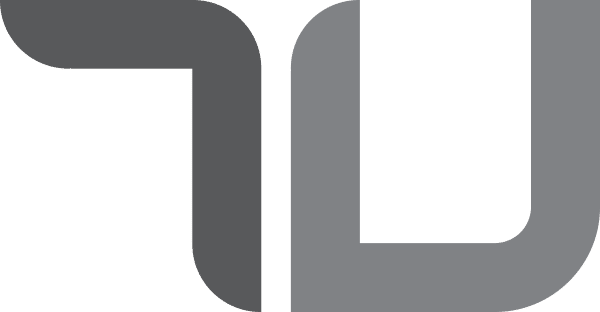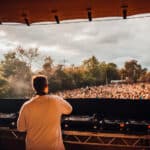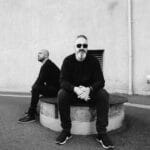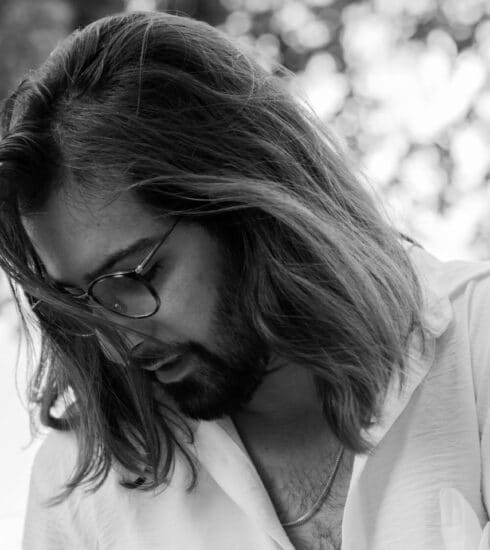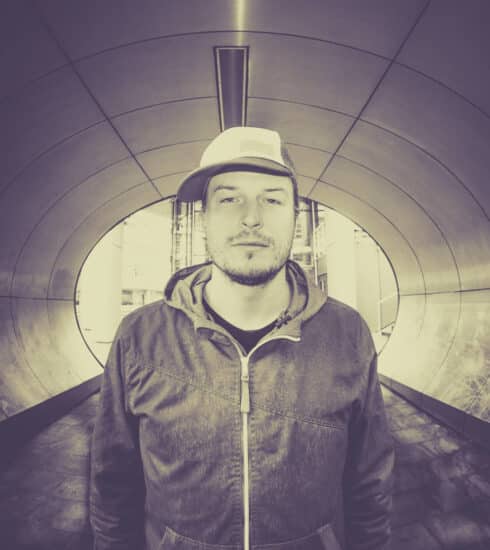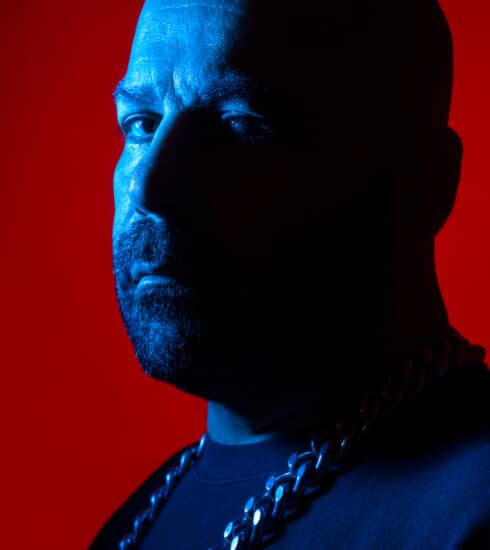SAYTEK (Live) Reveals Why Autism and ADHD Should Be Viewed As Gifts
Celebrating 20 years of innovative sounds in 2023 is UK live act – SAYTEK. He’s prolific force in the realms of house and techno, who continues to deliver stellar sounds year after year.
How do you prepare for your live sets, and what kind of equipment do you use?
My current setup includes: Novation Peak, Roland MC707, Roland SH-1 Tweak Synth, Roland T8, Pioneer V10, Korg Nano Key Studio, Korg KP3+, MacBook Pro, Ableton, Focusrite audio interface, Pioneer RMX1000.
I prepare by creating lots of individual patterns that I can jam on hardware. I also produce many elements that I bounce down to audio. Essentially, I generate a load of raw, jam-worthy ideas, then arrange everything live in the moment with improvisation and live sound design.
What are the main challenges and rewards of performing improvised hardware-heavy live sets that span the house and techno spectrum?
The biggest challenge is transporting the kit on trains, planes, and cars, and being at the venue before doors for sound check. I’m used to it nowadays, so it’s no big stress. In terms of rewards, it’s amazing to connect with people and make them dance. I feel totally in the zone when I’m performing.
How do you balance your creativity and spontaneity with the expectations and feedback of your audience and the promoters?
I don’t really think like that. I just make the music I love; the feedback loop is between me and the dance floor. Responding in the moment to the audience is one of the magical things about performing live.
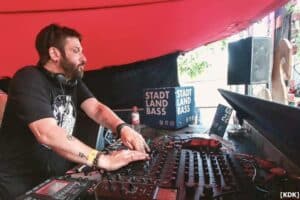
How do you cope with the symptoms of autism and ADHD, such as sensory challenges, distractibility, impulsivity, and social difficulties, in the context of your live performances and your career in general?
I have done a lot of work on myself. My confidence used to be super low, which fuelled my procrastination and distraction. Nowadays, it’s different; I hyper-focus when making music. Music production and live performance are my ‘special interest’, so I give it my all. The social aspect has improved for me as well; I am not very social outside my family, but much of the anxiety I had around people has diminished with time. If I need to talk to someone, I can now! Autism and ADHD used to be major challenges for me, but today I am happy, and I feel that they give me an advantage. I still act impulsively, but not in a destructive way like I did in the past.
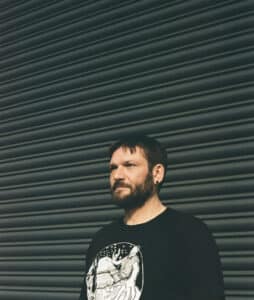
How do you manage your time and energy, and what strategies do you use to stay focused and organized on your tasks and projects?
Like I said, music is my special interest, so I am totally obsessed with it. Actually, it’s the only area where I am properly organized. I love being a dad and a husband as well, but if you asked my wife, she would tell you how obsessed I am with my music, lol.
How do you collaborate and communicate with other artists, such as Carl Cox and Christopher Coe, who are also involved in live electronic music and techno?
I see them at gigs, and I drop them the odd email. I have thanked Carl many times via Instagram; he always replies! Christopher deals with the business side of the label, so we talk about that. I have been for dinner and breakfast after a gig with Carl a few times, and we always connect over music and live performance; I never run out of things to say on this topic, lol!
How did you get involved with Awesome Soundwave, and what are the benefits and challenges of being part of a record label created for live artists in electronic music and techno?
Carl was playing many of my live-recorded tracks. I released an album on Cubism, the label I run with Mark Gwinnett, in 2016, and Carl played nearly every track off that at Space Ibiza and went on to play two of the tracks for a year. I then met Christopher at a music conference in Shanghai; he told me that he and Carl were setting up the label, and Carl had mentioned me as one of the acts he wanted on it! Being on the label is great, and it has meant doing shows with the other artists & Carl Cox. Carl said he wanted to tour the artists again in 2024, so looking forward to that!
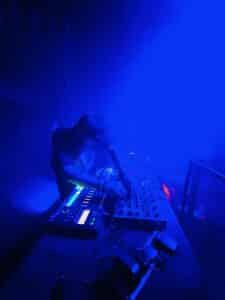
What are the main themes and inspirations behind your new album, and how does it reflect your personal and artistic growth over the years?
My albums are all made live and reflect what I am playing at the moment. My last live album on ASW, ‘Motifs From The New World,’ was made during lockdown with no gigs. It was introspective. This one was made right in the middle of touring. It features the live stuff I have been jamming out to crowds at many gigs across the world, from Fabric in London to 3 AM techno in Costa Rica, to Rave The Planet with hundreds of thousands of ravers dancing on the Berlin Streets. It’s the music I made to share with dancers in dark rooms and festivals. It’s tougher and aimed squarely at the floor!
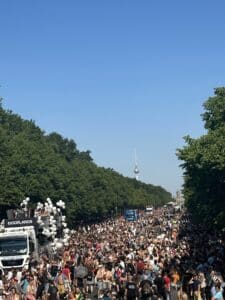
How do you approach the process of recording and producing your live tracks, and what are the differences and similarities between performing live and in the studio?
My live tracks are chopped straight out of live performances, so an hour-long live set yields approximately 12 tracks. There is no real post-production apart from making the beginnings and endings more DJ-friendly and then the usual mastering that every track gets before its release. I find making music live pretty liberating and very different from making studio tracks. You get one chance to get it right; you can’t spend ages editing the soul out of it!
What are your goals and aspirations for the future, and what are some of the projects or events that you are looking forward to?
I have some great gigs in the diary, including the Album Launch party in Amsterdam and NYE at Tanzhaus west in Frankfurt. I just want to keep doing what I do: making and performing music that I love.

